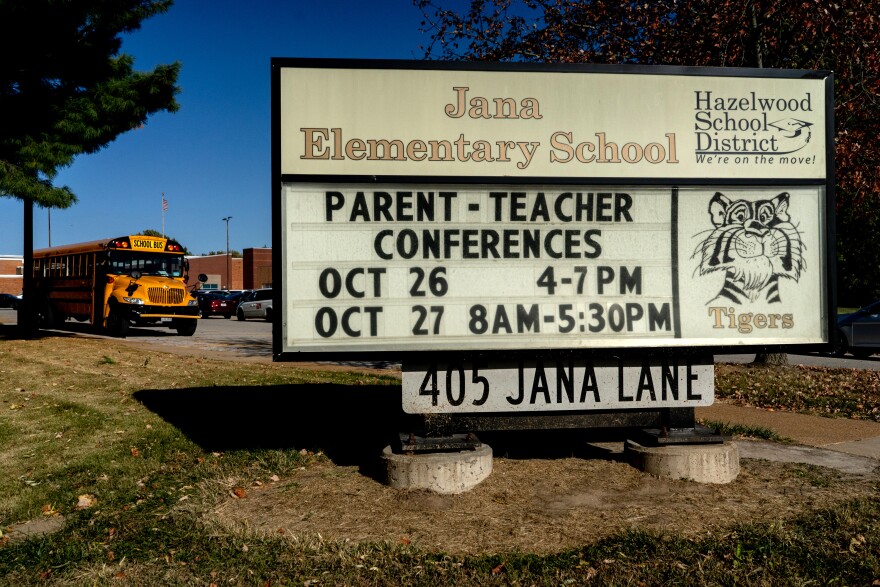In the first few months of the school year, Deborah Triggs’ son went from getting C’s and D’s to getting A’s and B’s. Triggs attributes the improvement to his teacher at Jana Elementary.
But Triggs’ son will have a new teacher and a new school as of Monday. Triggs is frustrated that her son is losing a helpful teacher.
“She's just an excellent teacher, and he's devastated,” Triggs said. “He was crying the other day, and he doesn't want to leave her.”
After a report raised concerns about possible radioactive contamination, the Hazelwood School District closed Jana. Students temporarily took virtual classes.
On Monday, Jana Elementary students start class at new schools in the Hazelwood School District. Despite parent calls to keep the kids together, the students will scatter to a handful of elementary schools and will largely have new teachers and classmates.
Triggs’ two sons will be in fifth and fourth grade at Barrington Elementary School. While they are disappointed about losing their teachers, the boys will have friends from Jana in their classes.
Still, Triggs worries about how this will affect her sons. The new school has fifth graders switch teachers throughout the day, to prepare them for middle school. That will be a big change for one son, whose class is larger than it was before.
“I hope and pray this doesn't set him back,” Triggs said.
This is the latest move in weeks of disruption for families at the elementary school. When the district decided to close Jana after a report found “unacceptable levels” of radioactive contamination, Hazelwood sent students to virtual learning until new school assignments could be made.
During that time, Jana Elementary Parent Teacher Association President Ashley Bernaugh advocated for the district to keep the students together and with their teachers. She was hoping Jana students and staff would be able to relocate to a district building that was formerly a middle school.
“Now we are forcing all of our kids to adapt midway through school to a whole different kind of teaching style, a whole different kind of classroom, a whole different kind of peer group,” Bernaugh said. “And that alone can cause huge delays, especially at elementary school level.”
Jason Bell, who also is a parent of a Jana student and a PTA member, wishes there had been more transparency from the school district as the decisions were made about where students would go. He said the new school assignments reminded him of a military draft, rather than the community conversation he was expecting.
“At the end of the day, we wish we were brought to the table,” Bell said. “We want to be brought to the table when we're discussing the outcome of our children.”
Adding to parent confusion, both the Army Corps of Engineers and a St. Charles-based consultant hired by the school board have said their own recent testing did not find unsafe levels of radioactive contamination at the school. Those conclusions contradict the earlier report from Boston Chemical Data Corp. that led to the school’s closure. That report was prepared for lawyers pursuing class-action and personal injury lawsuits connected to nearby Coldwater Creek. The Army Corps’ results were preliminary, but it says the outcome won’t change when the agency releases its final report in the coming months.
Bernaugh wants all three groups to do more testing at the same time, using the same methods, so results could actually be compared. She thinks that would help parents and community members trust later decisions about the school’s safety.






